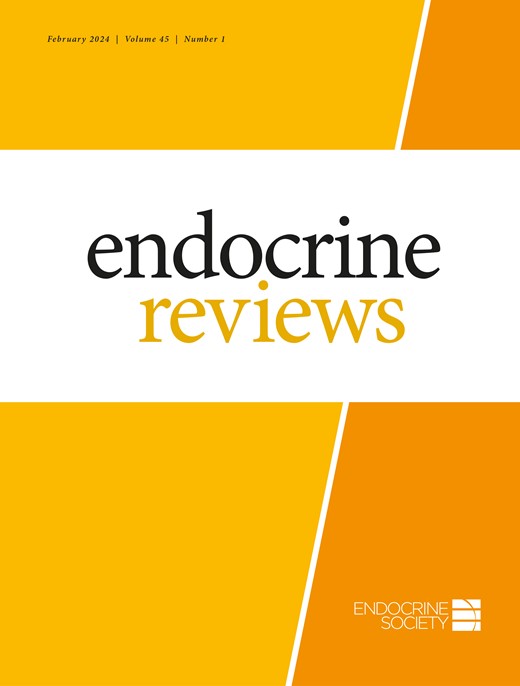Effects of maternal vitamin D supplementation on childhood health.
IF 22
1区 医学
Q1 ENDOCRINOLOGY & METABOLISM
引用次数: 0
Abstract
Vitamin D deficiency during pregnancy is associated with an increased risk of health issues in the offspring. Accordingly, recent Endocrine Society guidelines strongly support supplementation in pregnancy, also underlining that without consensus on optimal maternal vitamin D levels, routine screening is currently irrelevant. Knowledge of organ-specific effects of vitamin D and its association with maternal vitamin D status may aid to optimize vitamin D supplementation. This systematic review outlines the proposed next-generation effects of vitamin D supplementation ≥ 400 IU/d, and explores whether such effects are attributed to a specific maternal vitamin D level obtained during pregnancy. A systematic literature search was conducted in PubMed and Embase according to the PRISMA guidelines, focusing on health outcomes from ten days post-partum and beyond. Of the 2,383 screened articles, 39 were included. In 11 of 16 studies, vitamin D supplementation reduced respiratory tract infections in the first years of life. Growth or bone development benefits were observed in six of 12 studies. Positive effects on neurodevelopment and reduced autoimmune risk (diabetes-related antibodies) were noted, although further research is needed to determine the role of vitamin D. Very few studies have measured vitamin D concentrations, but even 1,600 IU/d supplementation was associated with high frequency of infant vitamin D insufficiency. Current recommendations may not ensure sufficient vitamin D levels at birth, among others, increasing the risk of early-life infections. Further studies linking maternal and infant vitamin D levels to specific outcomes would aid in personalized nutritional advice during pregnancy and improve next-generation health.母亲补充维生素D对儿童健康的影响。
怀孕期间缺乏维生素D与后代健康问题的风险增加有关。因此,最近的内分泌学会指南强烈支持在怀孕期间补充维生素D,也强调在没有对最佳母体维生素D水平达成共识的情况下,常规筛查目前是无关紧要的。了解维生素D的器官特异性作用及其与母体维生素D状态的关系可能有助于优化维生素D的补充。本系统综述概述了维生素D补充≥400 IU/ D的下一代效应,并探讨了这种效应是否归因于怀孕期间母体获得的特定维生素D水平。根据PRISMA指南,在PubMed和Embase中进行了系统的文献检索,重点关注产后10天及以后的健康结果。在2383篇被筛选的文章中,有39篇被纳入。在16项研究中的11项中,维生素D的补充在生命的头几年减少了呼吸道感染。在12项研究中有6项观察到生长或骨骼发育益处。虽然还需要进一步的研究来确定维生素D的作用,但研究人员注意到维生素D对神经发育和降低自身免疫风险(糖尿病相关抗体)的积极作用。很少有研究测量维生素D浓度,但即使是1,600 IU/ D的补充也与婴儿维生素D不足的高频率有关。目前的建议可能无法确保出生时足够的维生素D水平,从而增加了生命早期感染的风险。将母婴维生素D水平与具体结果联系起来的进一步研究将有助于在怀孕期间提供个性化的营养建议,并改善下一代的健康状况。
本文章由计算机程序翻译,如有差异,请以英文原文为准。
求助全文
约1分钟内获得全文
求助全文
来源期刊

Endocrine reviews
医学-内分泌学与代谢
CiteScore
42.00
自引率
1.00%
发文量
29
期刊介绍:
Endocrine Reviews, published bimonthly, features concise timely reviews updating key mechanistic and clinical concepts, alongside comprehensive, authoritative articles covering both experimental and clinical endocrinology themes. The journal considers topics informing clinical practice based on emerging and established evidence from clinical research. It also reviews advances in endocrine science stemming from studies in cell biology, immunology, pharmacology, genetics, molecular biology, neuroscience, reproductive medicine, and pediatric endocrinology.
 求助内容:
求助内容: 应助结果提醒方式:
应助结果提醒方式:


